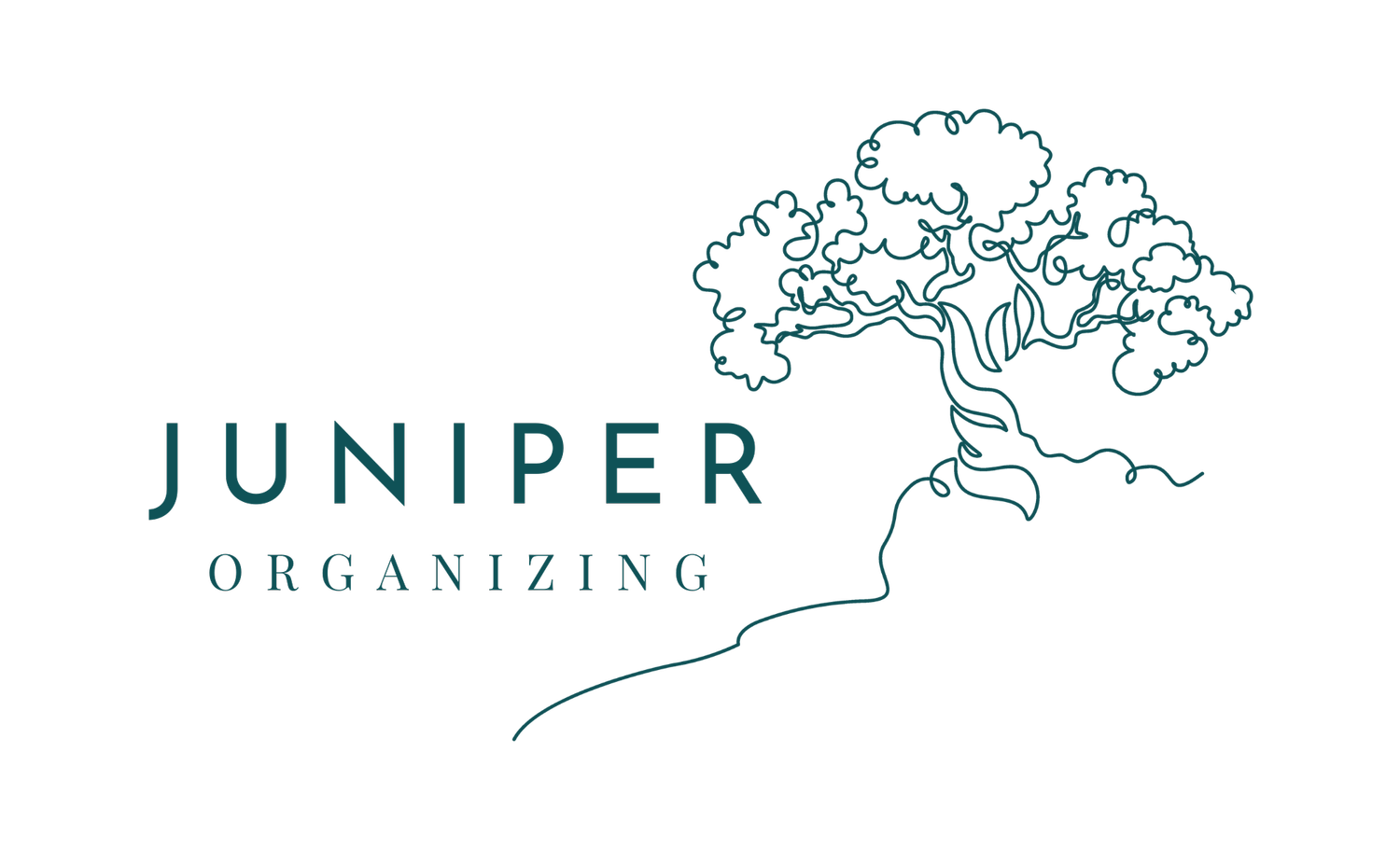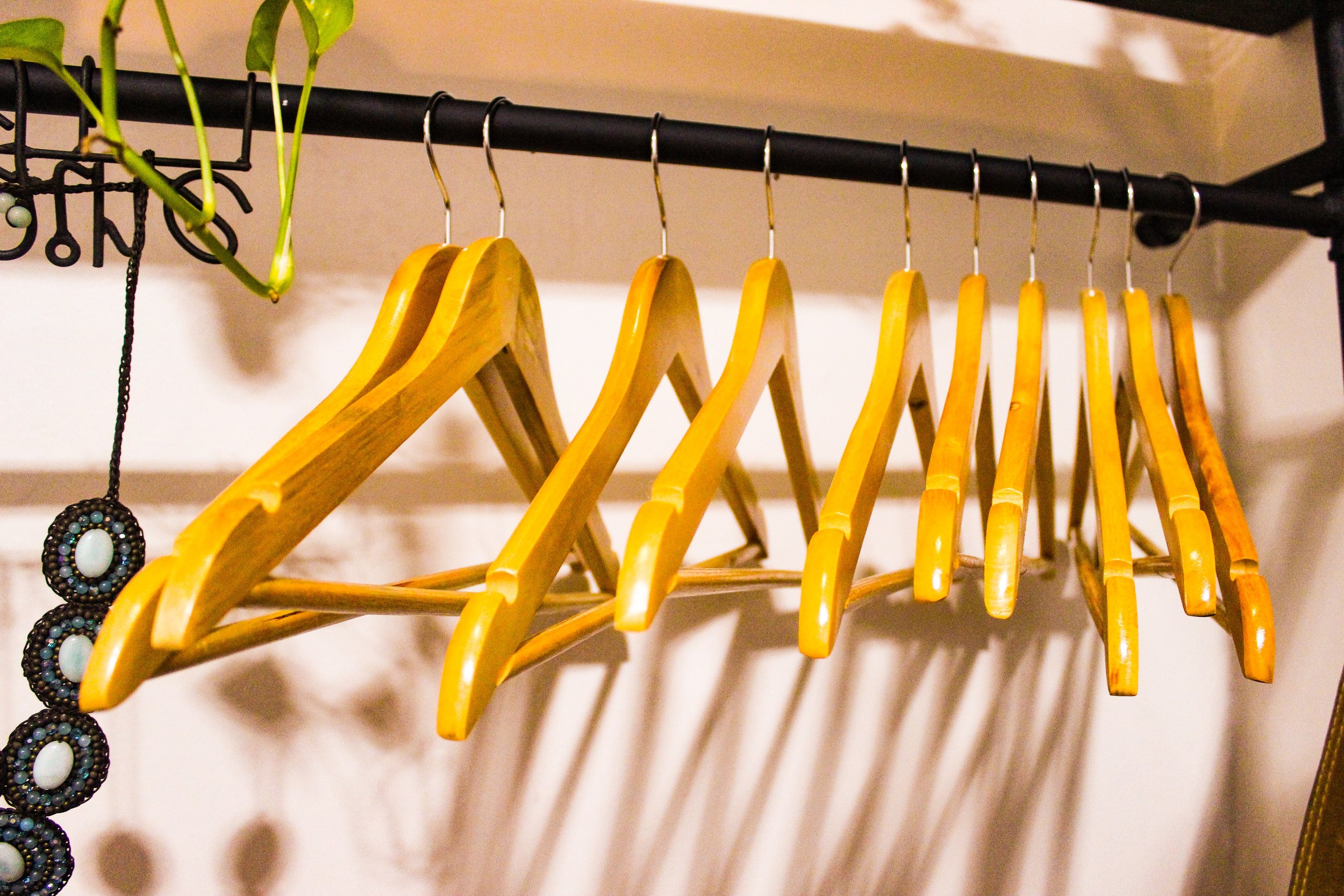Spring Cleaning: How to Declutter Responsibly and Locally
Happy first day of spring!
While it might not feel like it, warmer weather is just around the corner, and with that comes the motivation to open the windows, shake off the cobwebs (figuratively, and perhaps literally) and start your spring cleaning routine. It’s an opportunity to hit a big reset button on your home, and a perfect time to declutter!
What to do with decluttered items is often a barrier for many when it comes to home clean out. While I frequently talk about “discarding” items or “throwing things out,” the reality is most of these items do not end up in a landfill. I spend a fair amount of time sorting recyclables, researching where to drop things, and waiting in the donation line at drop off sites around the Twin Cities. It feels good to give your unused items new life by responsibly donating or recycling them.
To save you time on your spring cleaning checklist, I have put together this guide of local nonprofits and organizations that accept donations.
First things first: Responsible donating
The first step in any organization project is sorting out the items that you no longer need, use, or hold a sentimental attachment to. Since we are fortunate to live in a culture of excess, with easy and cheap access to fast fashion, often the items we’re discarding still have a lot of use left in them. Many times, they’re never been used or worn! But other times, we are getting rid of things that don’t work, are stained or torn, or are missing components. Nonprofits work on lean budgets, and sorting through these items takes time and money. Donate responsibly and do not drop off discards that belong in the trash or recycling. While it alleviates our own guilt to donate something, learn your local drop off sites rules, and if it’s not something that can reasonably be reused, save them the time of disposing of it for you.
Many county websites have a database of how to responsibly dispose of items. The Washington County Disposal Directory will allow you to search by item and tell you where to donate or dispose of your discards. Dumpsters.com also maintains a list of donation sites in the Minneapolis area.
Where to drop off your discards locally
National nonprofits like Goodwill, Savers, and Salvation Army, while stationed throughout the country, do amazing work partnering with and supporting the communities in which they’re located. These large centers take the greatest variety of donated items and often have the most flexible and easy to access drop off sites. They also consistently rank high on third party rating services, such as Charity Navigator. If these organizations' mission and values align with yours, you can donate with confidence that your decluttered clothing, home goods, and furniture donations will be put to good use.
If you are looking for more local declutter options, here are some alternatives that serve the Twin Cities and Saint Croix River Valley communities. These organizations are all located within my service area, however if you’re looking for something outside that radius, the site Donate Good Stuff helps you find where to drop off your discards locally.
Clothing and textiles:
Valley Outreach supports the St. Croix Valley in a variety of ways, including offering anyone food, clothing, or assistance navigating resources. They accept donations of new or gently used in-season clothing, as well as non-perishable food items and personal care items (time to clean out the bathroom cabinets!)
Textiles are particularly difficult to recycle, but your local Humane Society accepts not only gently used pet supplies and gear, but also clean blankets and bath towels. If your old towels aren’t quite up to standard to donate to Goodwill, make a visit to your Humane Society.
Sharing and Caring Hands is a safety-net organization in Minneapolis, helping individuals and families with wherever needs are not being met: They provide meals, clothing, showers, shelter, transportation and rent help, medical assistance, and other miscellaneous needs. They accept gently used clothing and shoes, bedding, towels, and personal care items.
Toiletries and personal items:
In addition to those listed above, Open Cupboard is a food pantry in Oakdale that accepts personal care items such as diapers, wipes, feminine hygiene products, shampoo and body wash. They package travel size products into bundles to give away.
Toys and baby gear:
The Minneapolis Toy Library is a toy lending program for families with children ages birth to 5 years. They accept like-new toys in good working condition.
Kaleidoscope Learning in St. Paul also has a toy lending program, and accepts gently used toys and educational materials for children ages birth to 6.
Baby’s grow fast, and often we find ourselves with unused gear, diapers, and wipes they have outgrown. These are usually accepted at food pantries (like those listed above) but are also accepted at Bundles of Love Charity, whose mission is to provide Minnesota newborns with the essentials.
Tools:
I was excited to find the Minnesota Tool Library: a cooperative that offers access to costly tools while reducing waste and trading skills. Check out their FAQs on what they accept.
Electronics:
Electronics can be recycled at your county's environmental center, but if they're still working, check out Minnesota Tech for Success or Free Geek Twin Cities. Both organizations refurbish tech equipment and offer it free or at very low cost to those who demonstrate a need. Both organizations work to improve technology access to students and individuals in the Twin Cities.
Athletic and Musical Equipment:
Youth Advantage serves children who qualify for free or reduced-fee lunch and go to school or reside in the boundaries of Stillwater Area School District. They offer academic and extracurricular assistance and help children pursue their passions in the arts.
Books:
I personally am a huge fan of the Little Free Library program, which builds community and expands book access world wide.
While accepted at most larger thrift stores, sometimes schools will also take books. Check with your local schools to see if they accept book donations.
Housewares, Furniture, and Kitchen Items:
Bridging, in addition to saving over 10 million pounds from landfills each year, they provide basic home essentials and furnishing to families in the greater Twin Cities. With drop off locations in Roseville and Bloomington, they accept furniture, houseware, small appliances, and decorative items.
With almost half a million foreign born residents in Minnesota, MORE supports immigrant populations through services and education. They accept clothing and small household goods for new Americans to use.
Don’t want to do it yourself? You can still donate clutter locally!
I realize many of us have the best intentions, but end up driving our donations around in our car for weeks before making it to a donation drop off. I work with several local junk removal companies to collect large amounts of donations from clients' homes. While calling themselves “junk removal” these local, small businesses still have responsible donating and recycling at the forefront of their business
Junk Justice is a junk removal business based in Oakdale, serving the entire Twin Cities metro. They will pick up donations and discards of any size (including furniture, yard waste, construction debris, and large appliances!) and either donate or recycle and dispose of it appropriately and responsibly. They also donate a portion of their profits to animal shelters and veterans associations.
Hauling It Away’s tagline is “a go-to green clean out and hauling solution.” Serving both sides of the Saint Croix River, this small business can help you declutter responsibly and efficiently.
Final Thoughts
I often hear the excuse not to get rid of something because someone doesn’t want to be wasteful or contribute to the landfill. The reality is that as soon as you have brought something into your home that you do not need or love, the waste has occurred. The money is gone and that item is now languishing in your home, taking up space and, most likely, mental energy each time you see it/move it/have to accommodate it. Donating it or recycling it so it can have a new life is the least wasteful action you can take. And if it can’t be donated or recycled, saving something that serves no purpose or brings no joy continues to waste the space it takes up in your home. Next time you’re tempted by an impulse buy or freebie, remember the time and energy that goes into maintaining, cleaning, storing, and ultimately, disposing of an item, and decide if it’s worth the effort.



